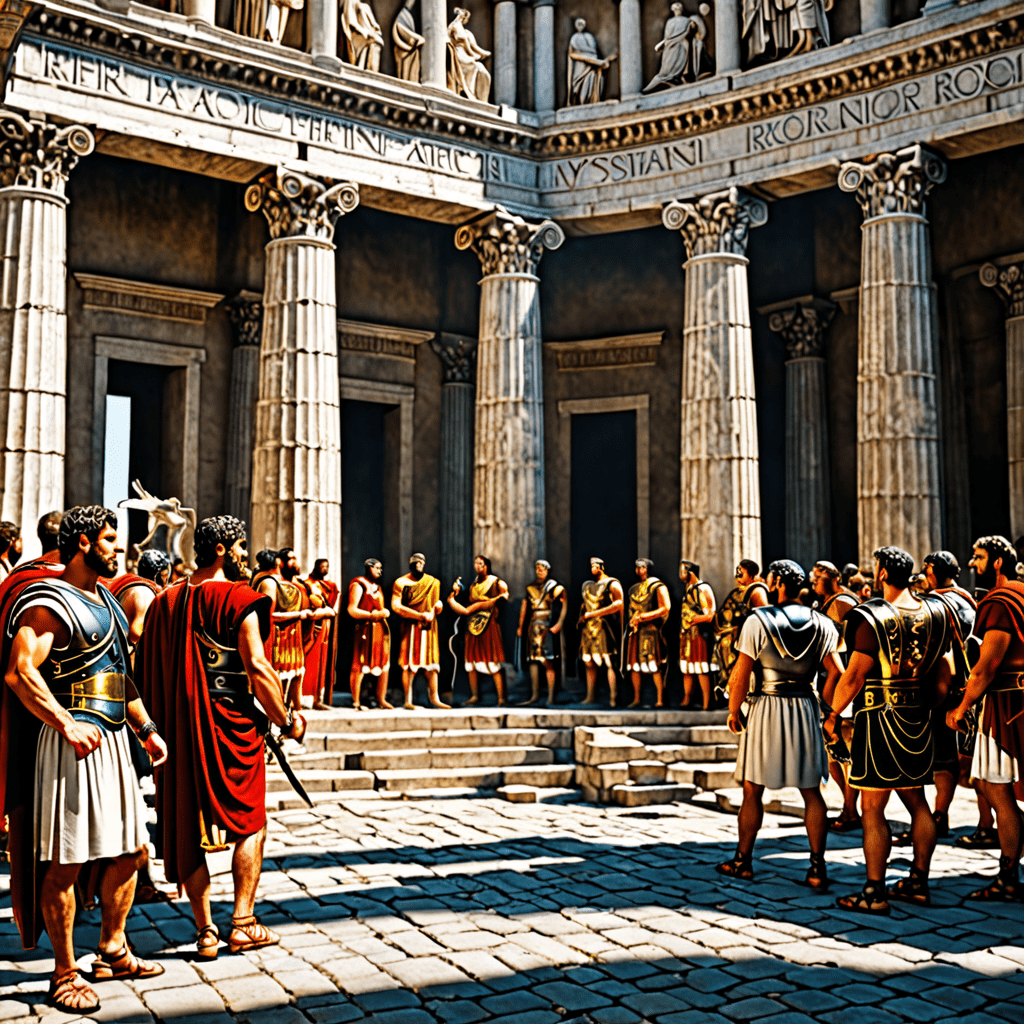The Mythological Origins of Roman Trials and Verdicts
Roman trials and verdicts were integral parts of ancient Roman legal processes, influenced by mythological beliefs and stories. Understanding the mythological origins behind these trials provides insight into the cultural and historical context of Roman justice.
1. The Influence of Roman Gods and Goddesses
The Romans believed in a pantheon of gods and goddesses, many of whom were associated with concepts such as justice, truth, and order. For example, Jupiter was the king of the gods and the guardian of justice, while his daughter, Justitia, embodied the concept of righteousness and fair judgment.
2. The Role of Divine Intervention in Legal Proceedings
Ancient Romans often sought divine guidance in legal matters. Priests would conduct rituals and offer prayers to the gods before trials, hoping for their favor and assistance in reaching a just verdict. In cases where evidence was lacking or conflicting, the belief in divine intervention played a significant role in shaping trial outcomes.
3. Trial by Ordeal and Its Mythological Connections
In some Roman trials, the accused were subjected to ordeals to determine their guilt or innocence. These ordeals often had mythological roots, such as the trial by combat that symbolized the battle between good and evil, reflecting the belief that divine forces would ensure the triumph of the just party.
4. The Legacy of Roman Legal Traditions Today
While Roman trials were influenced by mythology, their legal practices, such as the principles of evidence, witness testimony, and the role of judges, have shaped modern legal systems. The commitment to fairness and the search for truth, values rooted in mythology, continue to be foundational elements of justice systems around the world.
FAQ about The Mythological Origins of Roman Trials and Verdicts
What is the significance of mythological origins in Roman trials?
In ancient Rome, the legal system often drew inspiration from mythology to explain the origins of trials and verdicts. Myths were used to provide a moral and divine context to the administration of justice.
How did mythological figures influence Roman trial procedures?
Mythological figures like Jupiter, Juno, and Minerva were believed to oversee various aspects of justice in Roman mythology. Their qualities and actions were often mirrored in the conduct and decisions of judges and magistrates during trials.
What role did myths play in shaping Roman legal traditions?
Myths not only influenced the understanding of justice but also impacted the interpretation of laws and the establishment of legal principles in ancient Rome. They served as a cultural foundation for legal practices and traditions.
Can you provide examples of mythological influence in Roman trials?
For instance, the story of the judgment of Paris, where Paris had to decide the fairest among three goddesses, reflects the concept of weighing evidence and making a just decision. Such mythological narratives were woven into the fabric of Roman legal proceedings.





